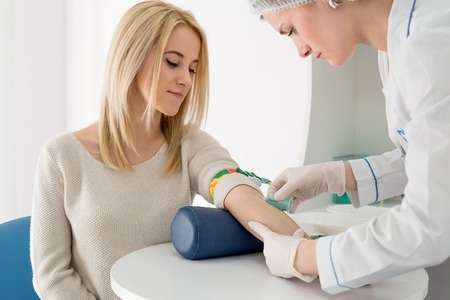Screening Tests During Pregnancy

In this article, you will find:
A positive screen
It's important to remember that a positive result does not mean your baby has Down syndrome. For example, if you have a 1 in 100 risk of Down syndrome, your test will be positive. However, the chance that your baby has Down syndrome is low since your baby will be normal 99 times out of 100. Talking to your doctor or a genetic counselor can help you understand your actual risk and decide if you want to have a diagnostic test such as amniocentesis for a definite result. Since diagnostic tests carry a risk of miscarriage, you need to weigh the risks before deciding to go ahead.
Some research suggests that women are more likely to enjoy their pregnancy and birth and come to terms with the diagnosis if they know in advance that their baby has Down syndrome. So don't assume therefore that you should only have a diagnostic test to decide whether or not to continue your pregnancy.
If you have a positive screening test for another more severe chromosomal disorder, such as trisomy 18, your doctor will talk to you about the outlook for babies with these conditions-the majority of whom die early in life, sometimes within the first week-to help you decide what to do. In some cases these disorders are associated with abnormalities detected during the dating scan, and the presence of these abnormalities combined with a positive test may confirm the diagnosis. Nevertheless, many women opt to have a diagnostic test before deciding whether or not to terminate their pregnancy.
Further screening
Another option is to have a specialized ultrasound scan to look for Down syndrome markers between 17 and 22 weeks. If the ultrasound doesn't show any signs of Down syndrome, the risk of your baby being affected is reduced. However, a second trimester ultrasound is not such an accurate test for Down syndrome as other screening tests and so you should only consider this path if you are strongly against having a diagnostic test such as amniocentesis and feel that you don't need a definite diagnosis.
Accuracy of screening tests
As more screening tests have become available, the detection rate for Down syndrome, which used to be assessed on maternal age alone, has significantly increased. The aim of screening tests is to provide a high detection rate for Down syndrome and a low "false positive" rate. A false positive means the screening test indicated a high risk of Down syndrome, but subsequent diagnostic tests gave the all clear, which means the mother would exposed to unnecessary testing.
| Tests | Timing (weeks) | Detection rate | False positive rate |
|---|---|---|---|
| Combined test | 11-14 | 85% | 5% |
| Integrated test | 11-13/15-22 | 85% | 1% |
| Quadruple test | 15-22 | 76% | 5% |
| Triple test | 15-20 | 69% | 5% |